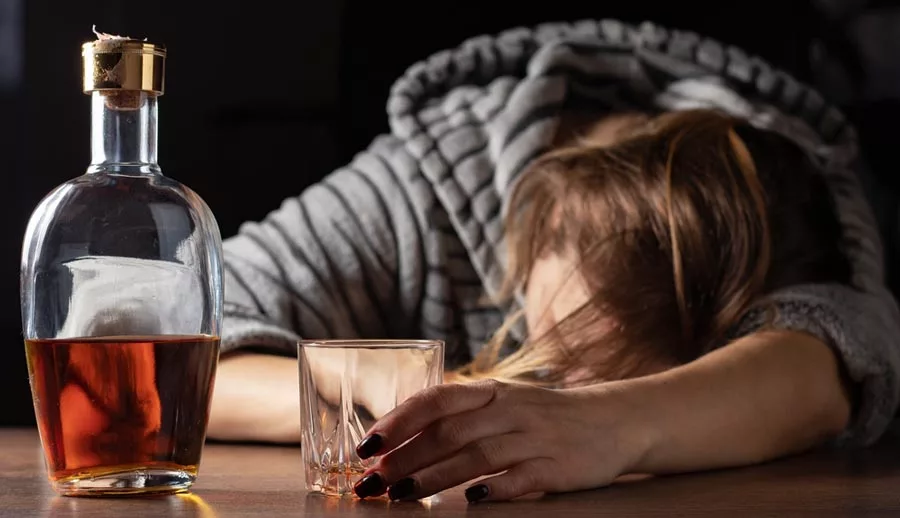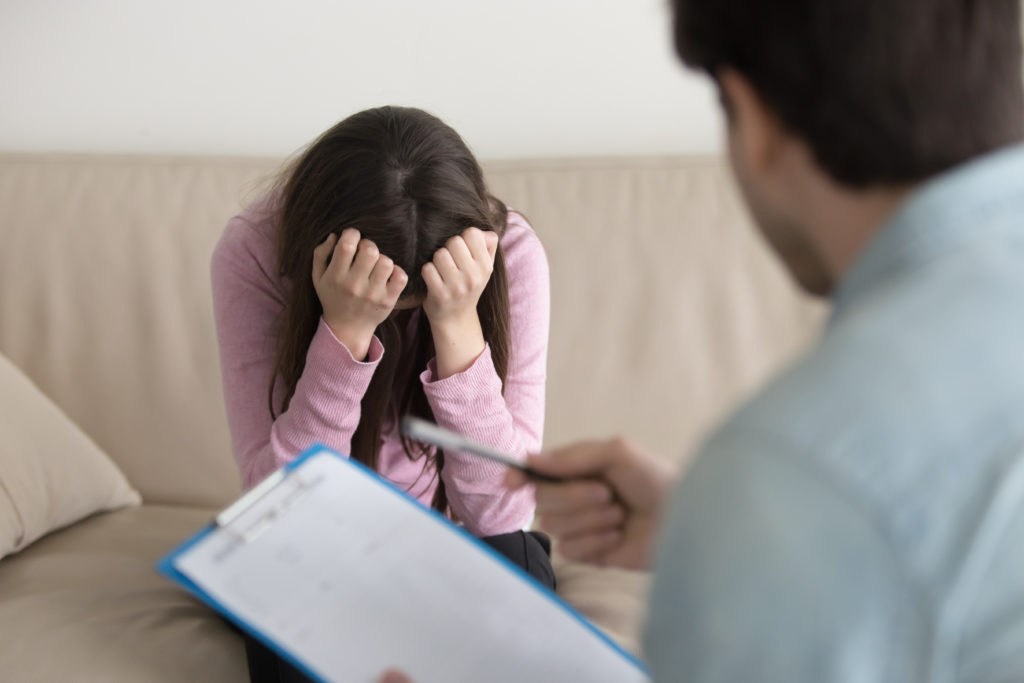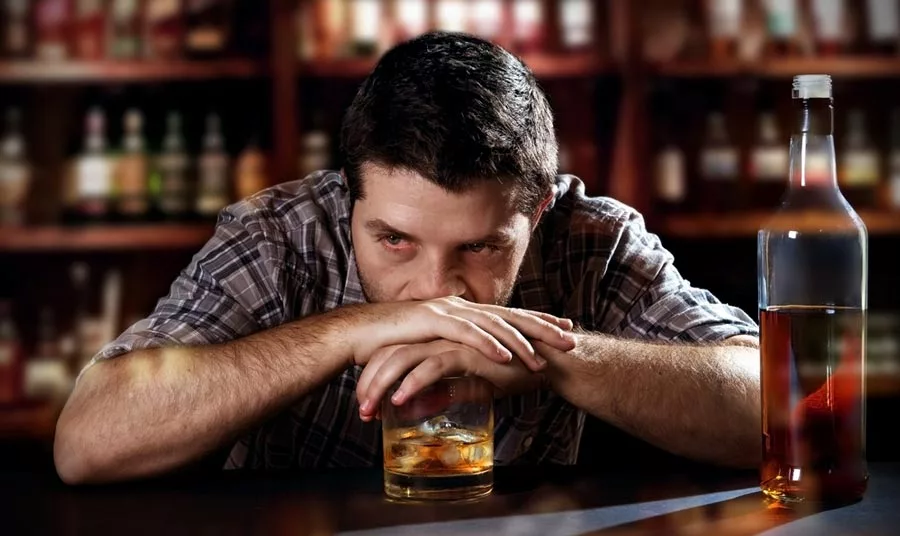The Siren Call to Self-Destruct in Sobriety
Table of Contents
- The Siren Call to Self-Destruct in Sobriety
- What Can Cause Drug or Alcohol Addiction Relapse?
- Common Excuses Given Before Relapse Occurs
- Why do Addicts Relapse When Things are Good?
- The Top 5 Reasons that Lead to Relapse
- How Do I Deal With Addiction Recovery and Relapse?
- Find Support and Renew Your Recovery Now
- Medically Reviewed By
Recovering from drug or alcohol addiction takes time, effort, and constant commitment. While it can be difficult to battle an active addiction, overcoming your substance use is extremely rewarding, and will allow you to re-establish a healthier and happier lifestyle.
Unfortunately, it can be difficult to maintain long-term sobriety for many reasons. The road to recovery is not always going to be easy, and relapsing is far more common than many people may like to believe. So why do addicts relapse when things are good?
Keep reading to see what can trigger relapse and how to handle these roadblocks during your recovery process.
What Can Cause Drug or Alcohol Addiction Relapse?
There are several factors that may trigger relapse, whether you are in the early recovery process, or have been sober for a while. These include:
- Stress
- Withdrawal Symptoms
- Mental Health Issues
- Negative Environments
- Lack of Education
Addiction is a chronic illness, with many common triggers and underlying causes that may not be properly addressed during the recovery process.
This has caused unfortunate relapse rates across the nation, with many people lacking the proper resources and tools to maintain their sobriety.
Some of the most common reasons for why individuals relapse include underlying mental health conditions and a lack of a solid support system, amongst other factors.
Common Excuses Given Before Relapse Occurs
“I Need to Spend Time Alone”
You may have spent hours alone with your drugs or alcohol, isolating yourself to hide the depths of your addiction. However, recovery is the time when you most need a supportive network who cares about your sobriety and how well you are feeling. If you don’t have ongoing support, you will begin to doubt your self-worth and begin listening once again to the voice of the addiction.
Yes, regaining your self-respect does require some time for meditation or introspection. However, the deliberate avoidance of your friends and family leaves you in jeopardy of completely withdrawing from your support network.
Remember that the same people—family, friends, colleagues, or neighbors—who encouraged you to get help are also your cheerleaders as you enter into sobriety. Stay in contact with those people. They should be made aware of what your relapse triggers are, so they can help you when you start to falter.
Find a local support group. This is where you can interact with others who know your struggles firsthand. Spend time with friends who will keep you on track. In the past, we’ve shared information about choosing the right support network during your recovery journey. We also encourage you to engage with more people and add to that trusted circle. Humans are social beings. We need those around us. Those relationships could the only thing to save you from succumbing to relapse triggers.
“I Wasn’t Really That Bad”
It’s frightening how easily you can become nostalgic and then forget about the worst parts of your life during addiction. It happens to many who are in recovery. In fact, some even begin to question whether they even have an actual addiction. It’s difficult to continue to admit that you have an addiction. That was why you went through detox.
However, when your body and brain begin to recover after detox, it’s easy to put on rose-colored glasses and revive fond memories of partying. You conveniently forget the days when you spiraled out of control.
This thought process is fraught with danger because it justifies picking up the bottle, pipe, or needle again. You begin to believe that you really weren’t that bad, so you question why you need to resist the temptation.
When this happens, jot down a list of five negative things that happened to you while you were using.
Your list of negative events might look like this:
- My best friend abandoned me
- Went to jail
- Kids in foster care
- Lost a great job
- Spouse left
Naturally, you will list your own experiences, but those represent common examples. This exercise helps you to remember how out of control your life really was. In turn, it helps you to resist relapse triggers.
Another exercise you can do is to step into your own shoes just before you get help by writing a goodbye letter to your own addiction. Finally, make it a habit to read recovery stories when you are in danger from this dangerous thought pattern.
“Just Once Won’t Hurt”
Just once won’t hurt. That familiar refrain causes poor decision-making. You swear to yourself that you can control your impulses and stop with just one. It can prompt a quick trip to your dealer or a favorite bottle store. This way of thinking will lead to an inevitable consequence—relapse.
Remember that hospital beds and morgues are filled with people struggling with addiction who said, “Just once won’t hurt.” A relapse trigger starts off with a set of thought patterns, and that is all that is needed to set it in motion.
There’s a common saying in recovery, “One is never enough and two is too much.”
People stricken with addictions from those who shoot heroin to those who pick up the bottle struggle with compulsive behaviors. Starting off an evening out with the “just once” thought pattern can place you in peril. “Just once” is a trigger to relapse.
“It Helps Me Manage My Stress”
Let’s face it. We live in a fast-paced world where everyone is stressed out. The after-work ritual of drinking shots with friends or tying off seems like a great chance for some R&R. This is another dangerous trap that many fall into.
A report done by the National Institute of Drug Abuse, states that “Stress is one of the most powerful relapse triggers for relapse in addicted individuals.”
Sounds accurate, right? In fact, many of us started drinking or taking drugs to manage our high levels of stress to begin with! Remember, though, that drugs and alcohol only offer short-term stress relief. You need to learn new ways to cope.
This is why it’s so critical that you practice new stress-management techniques not only after detox but during your entire recovery. Learn what your relapse triggers are, and then learn how to resolve the feelings of anxiety and nostalgia you associate with those relapse triggers.
Try reducing your stress with a yoga session, a walk in the park, a binge-watch of Netflix, or even playing a new game on your iPad. Anything you can do to unwind but remain substance-free is fair game. At the end of the day, all that truly matters is if it makes you feel relaxed while keeping you clear-headed. This will help you stop your dangerous thinking and allow you to continue to focus on your sobriety.
Why do Addicts Relapse When Things are Good?
The Top 5 Reasons that Lead to Relapse
1. The Impact of Stress on Relapse
Unfortunately, stress is an unavoidable element of life. Everyone will experience this at various points in their lives and may choose to handle it with their own coping mechanisms. Unfortunately, many people may choose to cope by using drugs or drinking alcohol.
Avoiding relapse can be a stressful experience in itself, and if you are not equipped with healthy coping mechanisms, it can make your experience of staying sober all the more difficult.
Because of how big of a triggered stress can be, many addiction treatment alumni programs will incorporate relapse prevention resources and programs in their approach to recovery.
For people with more severe addictions, it is usually strongly recommended that they seek out an inpatient or residential treatment program. These will provide them with 24/7 supervision and support, and help remove them from any outside stress factors or temptations.
More intensive levels of care can also help improve your chances of maintaining long-term abstinence and being better equipped for beginning your new life of independent sobriety.
2. Withdrawal Symptoms and Relapse
Withdrawal is one of the top reasons why an addict may relapse when trying to overcome their addiction. This process usually takes place within the first week of stopping substance use, as the body adjusts itself to no longer having access to an abused drug or alcohol.
In many cases, a person may relapse because they began retaking an abused substance in order to avoid withdrawal symptoms. People may experience a number of symptoms ranging in severity and frequency. The type of withdrawal you experience may depend on:
- The type of substance you are abusing
- How much of the substance do you usually take
- How frequently you are using the substance
- How long you have been abusing the substance
Some of the physical side effects of withdrawal can include hot and cold sweats, nausea, restlessness, vomiting, insomnia, diarrhea, and muscle pains. In extreme cases, seizures and even death may occur.
In many cases, going through the relapse process can seem preferable to withdrawal. This, however, could not be any further from the truth.
Withdrawal, especially when correctly managed, will only last for a couple of weeks in most cases. Relapse and the destructive cycle of addiction, however, will last a lifetime.
If you are struggling with substance abuse and wish to recover, doing so through a medical detox program can help manage and even prevent many symptoms of withdrawal, in turn making it all the easier to avoid relapse.
3. Mental Health and Substance Abuse
In many cases, people will begin abusing drugs and alcohol in order to combat negative feelings and thoughts, such as those caused by depression, anxiety, or low self-esteem. This is because drugs can produce feelings of euphoria and relaxation.
However, this so-called positive effect on one’s feelings is only temporary, and the crash period after using them can make these negative emotions come back even stronger than they were before.
Over time, these co-occurring mental and substance use disorders can further distance the person from their friends, family, and responsibilities, further sending them into a self-destructive cycle of drug and alcohol abuse.
If you are in recovery from addiction, but are not getting help for the underlying emotional causes of your substance use, this can make it incredibly difficult to enter recovery on a positive note.
Without properly addressing the causes of your addiction while receiving treatment, the likelihood that you will relapse upon leaving rehab will significantly increase. Seeking out dual diagnosis treatment options and behavioral therapies can help minimize your risk for relapse.
4. The Impact of a Negative Environment on Recovery
Drugs or alcohol are not the only triggers people learn to avoid during their recovery process. In many cases, certain people, places, and things can be associated with their addictive behavior, and serve as potential triggers for relapse.
Because of this, hanging around the same people that you did before getting treatment for your addiction can be a major relapse risk.
Similarly, being in an environment that reminds you of your past habits can also be triggering. This may include a bar you used to frequent or your old drug dealer’s neighborhood.
Learning how to establish healthy boundaries with these potentially negative influences and how to avoid triggering environments will be an essential part of your journey to achieving long-term recovery.
Having effective coping mechanisms and a solid support system in place can help you avoid falling back into old patterns should you come across a triggering situation. This can include finding new hobbies, and friends, or even joining a sober support group.
5. A Lack of Education On Addiction and Recovery
Many people may go into treatment feeling overly confident about their ability to overcome their addictions. While confidence is a good thing to have, both in yourself and your treatment program, this alone will not be enough to overcome these harmful habits.
Unfortunately, a lack of education on how addiction chemically alters your brain and can have long-lasting effects on your decision-making abilities and judgment can lead recovering individuals into potentially risky situations.
This is why it is so important to understand how your addiction has affected you, and what led to your patterns of use in the first place.
It is important to know your limits, and how to avoid triggering factors, rather than walking blindly into potentially harmful situations with confidence that you will not be tempted into using again.
In order to ensure your best chances at maintaining sobriety, it is important to never stray away from your treatment program and the recommendations your healthcare provider has made for your recovery process.
Needing help does not make you any less strong. In fact, acknowledging your weakness and seeking more information and resources on how to overcome these can be one of the strongest testaments of your strength and resolve to overcome the grip of an abused substance.
How Do I Deal With Addiction Recovery and Relapse?
Now that you understand how and why relapse occurs, it is important to understand how to deal with these triggers should they occur. No matter how long you have been sober for, constantly seeking out new tools and resources for sobriety can only help you make further progress.
There will be all sorts of roadblocks and challenges that you will meet on your recovery journey, and you may relapse multiple times within this process. If you do relapse, here are a few ways that you can overcome this and continue on your path to recovery:
- Ask for support. Having a close network of supportive family members and friends can help provide you with the positivity and encouragement to stick to your recovery goals and resist temptations.
- Seek out recovery groups. There are various twelve-step programs and secular recovery groups, such Alcoholics Anonymous (AA) and S.M.A.R.T Recovery, that are full of people who understand what you’re going through. These can provide a non-judgemental and helpful environment for you to discuss your struggles during recovery and find ways to stay sober.
- Make a plan. If you do happen to relapse, making a plan to overcome this fallback and ensure that it won’t happen again can be essential to your recovery. This can include keeping track of new triggers as they are discovered, and a list of people and resources you can turn to for help.
Find Support and Renew Your Recovery Now
If you or a loved one is struggling with drug or alcohol abuse, this can be an incredibly difficult thing to go through. That’s why at Find Addiction Rehabs, we are dedicated to helping you find the help you need to overcome your addiction.
Our hotline is available 24/7 so that we can connect you with a treatment center that will serve all of your care needs. Call now, and we will help you get started on your path to sobriety today!
Bryan was born in Philadelphia and remains an ardent supporter of Philadelphia sports. After attending FSU and FAU where he majored in writing, Bryan ventured out to follow in the footsteps of his idols, running straight into drug addiction. After being arrested by the President’s Secret Service, Bryan finally started to rebuild his life and beat that monkey off of his back through writing, playing music, and studying Buddhist philosophy.
Despite still having the occasional struggles with mental health, Bryan strives to be a little bit better a person each day. With the support and love from a loyal family, and kind-hearted and generous friends, Bryan tries to help people vanquish their own personal demons as he did and bring more love and beauty into a pessimistic world.





